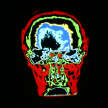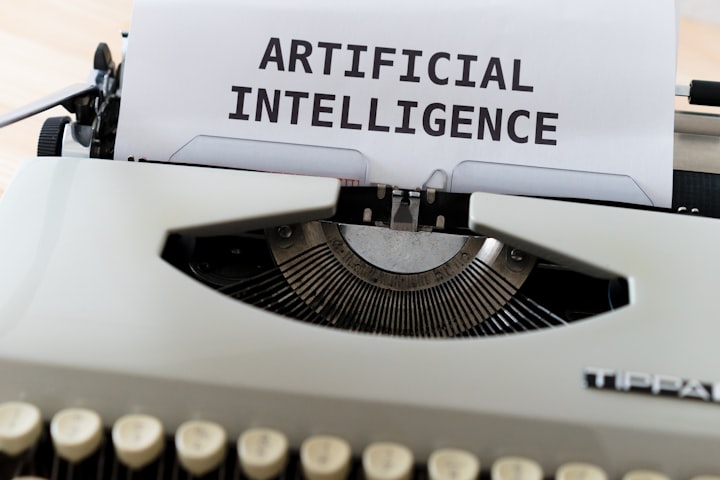Captivating Artificial Intelligence Books
Explore the questions of the future of technology and humanity in the most captivating artificial intelligence books.

In science fiction, artificial intelligence refers to the idea that scientists might one day create machines that are equally intelligent as (or more intelligent than) humans. The concept has been popularized in movies like AI: Artificial Intelligence, about robotic boy, and Her, about a super-advanced version of Siri that falls in love with an ordinary man.
The possibility of AI raises questions about the nature of such entities—would they be human? Would they have souls?—and the nature of what it means to be human. These questions have been explored with remarkable thoroughness and thoughtfulness in artificial intelligence books by some of the leading science fiction writers of the 20th and 21st centuries. Writers like Philip K. Dick and William Gibson have bravely faced the question of what happens when the very things that make us special—our intelligence, our primacy in the natural hierarchy—are taken away from us by creatures that we have invented.
The inspiration for the movie Blade Runner, Philip K. Dick’s artificial intelligence book describes a near-future solar system where menial tasks are performed by robots known as “replicants.” These robots are virtually indistinguishable from real humans, except they don’t appear to share the fullness of human emotion. When a group of replicants try to escape their slave-like working conditions, they are pursued by a bounty hunter named Deckard who may or may not be a replicant himself. One of the best Philip K. Dick book to movie adaptations and one of his more accessible works, Do Androids Dream of Electric Sheep? traffics themes of religion, identity, empathy, the potential for cruelty, and the question of what makes a person truly human.
Dan Simmons taught English before turning to writing full-time, and the Hyperion Quartet should appeal to anyone with an interest in literature, high culture, and religion. The setup of the first book, Hyperion, can be described as Isaac Asimov's Foundation series meets The Canterbury Tales. After the Earth’s destruction, a group of seven pilgrims travels to a colony planet. Along the way each of the pilgrims tells a story, which allows Simmons to demonstrate his flexibility in multiple genres—noir and cyberpunk among them. There’s even a futuristic retelling of Romeo and Juliet. Hyperion and its sequels are elegantly written, packed with literary and musical references, and bristling with new ideas.
The one nonfiction artificial intelligence book on this list, Superintelligence is philosopher Nick Bostrom’s attempt to grapple with the seeming inevitability of intelligent artificial life forms. Taking it as given that humanity will eventually create machines that can think for themselves, Bostrom warns that such an event would pose an existential threat to the survival of mankind. Those machines would have agendas of their own that might conflict with ours. We will be at the mercy of such creatures in the same way that animals like horses and cattle are at our mercy now. The book has been praised by leaders like Bill Gates, who see in Bostrom’s conjectures a warning for the future of humanity.
Heinlein’s artificial intelligence book describes the attempt by a lunar colony to lead a revolution against the government of Earth and form its own state. This shares obvious parallels with the American Revolution (parallels that are underlined in the date chosen for the revolt, July 4, 2076). The revolt is led by a one-armed man named Mannie who has been placed in charge of a super-computing system known as Mike that one day gains sentience. Man and machine team up with a young activist who has learned that the moon’s food supply is about to decline precipitously, with a high probability of riots, famine, and cannibalism. The resulting story is manic, madcap, and fast-paced, but Heinlein still manages to weave in some of his personal musings about polyamory and the possibility of a truly libertarian society.
Greg Egan’s 1997 cyberpunk novel takes the basic premise of The Time Machine—that in the far future humanity has evolved into multiple species—and multiplies it. In this world there are homo sapiens who have been bio-engineered to survive under the sea or even had their ability to think rationally removed, reverting to a primitive state. There are humanoid robots living in flesh bodies in outer space, and digital humans living as avatars in a vast computer world. The plot involves the attempts of a few humans to convince what remains of biological humanity to upload themselves into digital form when an exploding star system threatens to wipe out all life on Earth. Interestingly, much of the story is told from the perspective of avatars, suggesting that at this point in history biological humans may be a largely spent force.
It’s a testament to the game-changing nature of this seminal cyberpunk novel that much of its language makes more sense to present-day readers than it did to its first readers in 1984, because Gibson’s invented language (including terms like “the matrix”) has become widely adopted. The premise borrows heavily from John Carpenter’s Escape from New York: a hacker who was punished for theft by being forbidden from accessing cyberspace meets a man who offers to restore his access if he retrieves a dead man’s digital consciousness. The ensuing heist anticipates sci-fi film classics like Inception and, of course, The Matrix. Gibson’s novel has been hailed not only as a great work of sci-fi, but also one of the finest works of contemporary literature in any genre.
Like several of the artificial intelligence books on this list, Counting Heads, David Marusek’s first novel, attempts to imagine life in a near-future world where humanity is slowly being replaced with its own technologies. When you can no longer work because a robot (or a clone) has taken over your job, and when conceiving a child is a rare privilege granted to few, what meaning does life have? Marusek explores these and other questions in a book that has been praised for its literary qualities and critiqued for the way its ideas occasionally overwhelm its characters. The novel’s sequel, Mind Over Ship, follows a group of unemployed clones and features plausible oddities like a spaceship filled with thousands of frozen bodies and a dead woman trying to bring herself back to life.
The first novel in the Culture series makes the unusual decision to portray events from the perspective of a character who would be considered an antagonist in the overall scheme of the series. When the Culture declares war upon the Idirans, an Idiran adventurer and mercenary known as Bora Horza Gobachual is assigned the task of retrieving an escaped Mind, an advanced form of artificial intelligence. This book, which secured Banks’ reputation as a writer after numerous rejections, is memorably dramatic, full of war, betrayals, desperate last stands, and a dying man’s last mad act of revenge. The famously downbeat ending recalls the bloodbath in the last scene of Hamlet.
A Fire Upon the Deep is the first book in a trilogy exploring what our galaxy would be like if technology became more advanced the further you traveled from the center. While science on Earth hasn’t advanced much beyond its current state, there are “zones” in the galaxy where faster-than-light travel is possible, and there is a zone beyond that filled with intelligent beings who seem like gods to us mortals. The plot of the book centers on the accidental unleashing of a billion-year-old malevolent being (actually a sentient virus) known as the Blight that can infect and destroy machines, animals, and people. The novel has received praise for its world building, which rivals Tolkien in its complexity.
Excession is the fifth novel in Banks’ Culture series, and it portrays the aftereffects of the discovery of a mysterious dead star that seems to have come from nowhere. It might be older than the universe itself. Unusually, Banks tells much of the story from the perspective of the Minds, hyper-intelligent artificial beings. The author has great fun showing us the messages exchanged between these creatures as they attempt to probe the mysteries of the sphere. The book's denouement, in which the true nature and origin of the sphere is revealed, packs a moral sting that will be familiar to fans of Star Trek and The Twilight Zone.
About the Creator
Futurism Staff
A team of space cadets making the most out of their time trapped on Earth. Help.






Comments
There are no comments for this story
Be the first to respond and start the conversation.